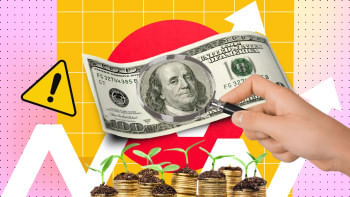Taking on the challenges of water and sanitation

With a 25-year illustrious career in the water, sanitation and hygiene (WASH) sector, Hasin Jahan was appointed the country director of WaterAid Bangladesh last year.
Prior to this appointment, she has held key positions in Local Government Engineering Department (LGED), Danish International Development Agency, WSP Global, International Training Network Centre-Buet, and WaterAid. Her last role was as country director of Practical Action.
An industry expert and veteran in the development sector, Jahan spoke with The Daily Star about the challenges in WASH and the way forward.
How do you feel about the new position?
This is a big responsibility, bringing with it as many challenges as possibilities. But if there's no challenge, there's no thrill. In WaterAid, I have to closely work with policymakers, so there's a lot of scope for innovation. I'd say I'm quite enjoying this role.
Safe water and sanitation is a global issue, and of large interest in Bangladesh. What is your evaluation about the WASH sector of the country?
There are two perspectives here -- some think there's no shortage of water in the country, after all, everything sinks during floods. There are also the stats indicating that we've achieved 100 percent sanitation, and open defecation is down by a standard level, so there's a common perception that water and sanitation is not a big enough issue.
However, if you go deeper and consider the sustainable development goal-6 of ensuring clean water and sanitation, we still have a long way to go. Around 13 percent people in the country are still at risk of arsenic. Two crore people in coastal regions are battling rising levels of salinity, which is a growing problem due to climate change.
How can these problems be solved?
Quality and quantity are two problems with water. There are separate water management systems in rural and urban areas. Here we need an overall revision in planning.
Currently, National Water and Sanitation Strategy is under revision in light of SDGs and in its final stage. The strategy has suggestions to take special initiatives -- subsidy, special projects and management etc for remote areas.
Do you think equal allocation of government fund for every region would work?
Obviously not. Hydro-geologically, the country is divided into several regions. In hill tracts where population density is low, there is a need for special technology -- gravity flow system to collect drinking water. This needs several lakh taka to set up while the maintenance cost is also very high. The government has to take stratified decision for fund allocation in separate regions.
Despite Dhaka Wasa producing safe water and supplying it to city dwellers, we often observe cases of waterborne disease. What could be the reason behind this?
In most cases, water is fresh in its source. However, it often becomes contaminated during transportation, and this continues up to filling it into a glass. So here comes the issue of a step-by-step water safety plan. There is a need for national level campaign to keep water safe in every step.
Waste of water is evident everywhere from households to public places. How can this issue be tackled?
This needs special attention; Wasa, development partners, e veryone should work on it. A national level communication campaign should be initiated. Normally such campaigns are too expensive for organisations like us. The government and donors can do it jointly. Also, children should be taught not to waste water.
Another faulty system for Dhaka city is septic tanks, which ultimately lead to dumping foecal waste in Buriganga river or nearby canals. So, we are polluting the environment.
There is still so much disparity -- we pay some Tk 11.57 for every thousand litres of water but people in the coastal belt are paying Tk 20 for a pitcher of water. Yet we should all have equal rights as human. We're working on this issue and I hope to see positive change in the future.
How is WaterAid contributing to the SDGs in Bangladesh?
WaterAid is working in 17 districts, six city corporations and four municipalities currently.
Recently, we have assisted the government in developing a pro-poor strategy. Our role is to support the government in development work. As an NGO, we can demonstrate activities to show the way. For example, we along with other NGOs went for national sanitation movement under the leadership of the government. Now we have reached around 100 percent sanitation.
For foecal waste management, we have set up a plant in Sakhipur in Tangail with a full value chain — fecal waste source-to-end use. Now the World Bank, Islamic Development Bank, and the Asian Development Bank have come forward with funds.


 For all latest news, follow The Daily Star's Google News channel.
For all latest news, follow The Daily Star's Google News channel. 



Comments